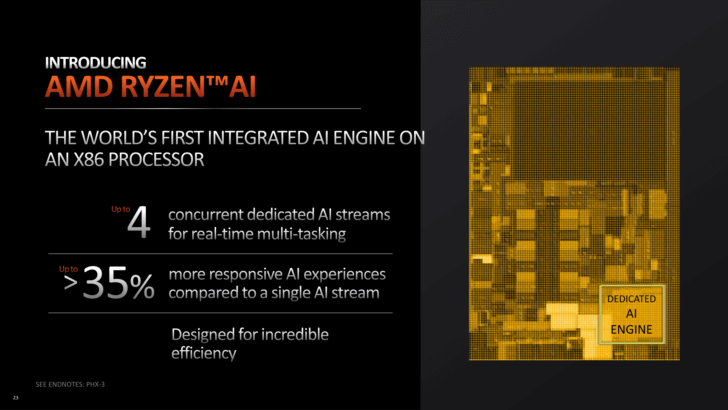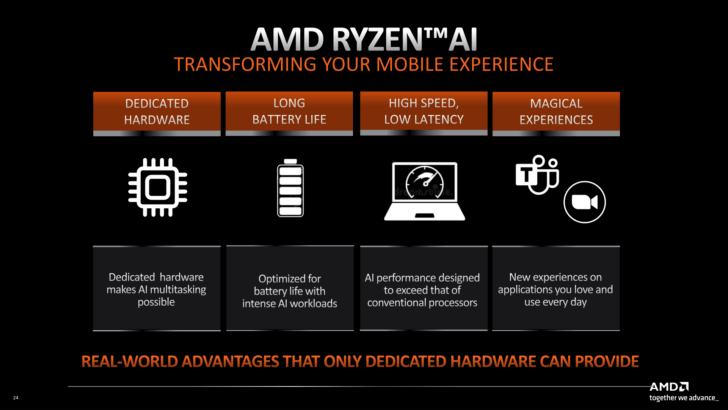Contrary to a recent TechSpot report, it’s essential to set the record straight: AMD has been ahead of the curve, delivering the industry’s first AI-enabled x86 CPU chip for PCs since May.
AMD introduced the 4nm Ryzen 7040 Series, a high-end CPU equipped with AI technology earlier this summer. Furthermore, they have ambitious plans to extend their AI technology across a broader range of desktop and laptop Ryzen CPUs next year.

Lisa Su, the CEO of AMD, emphasized the long-term prospects of AI, recognizing it as a multi-billion dollar growth opportunity. AMD envisions this growth spanning across cloud computing, edge devices, and a diverse array of intelligent endpoints. This broader perspective on AI’s potential was highlighted when Intel’s CEO, Pat Gelsinger, unveiled Intel’s plans for the “AI PC,” featuring the upcoming Core Ultra chip designed to offer AI capabilities and performance enhancements.
However, AMD was the first to integrate AI IP from the Xilinx Versal adaptive SoC into the Ryzen 7040, enabling a faster time-to-market with proven AI acceleration technology. Essentially, the AI IP utilized in the Ryzen 7040 is derived from Xilinx’s ACAP reconfigurable product line, seamlessly integrated into the CPU. This integration marks the debut of a product that benefited from their joint IP efforts and showcases their effective collaboration following the acquisition.
While AMD has yet to release AI benchmarking results comparable to those from MLCommons (as there is currently no direct competition), the company confidently asserts the same advantages that Qualcomm has been championing for its Snapdragon ASIC in smartphones: dedicated AI performance, enhanced security and privacy features, and cost-effectiveness. AI capabilities on local devices have the potential to address a multitude of challenges, provided that the AI model’s size is manageable. Notably, the AI feature is available across five different SKUs, each offering various clock rates and power levels.

Leveraging resources from the Xilinx acquisition, AMD has also developed a platform for quantizing and running AI models, including generative AI. The Ryzen AI software platform empowers developers to take machine learning models trained in PyTorch or TensorFlow and seamlessly execute them on select laptops powered by AMD Ryzen AI technology. This software intelligently optimizes tasks and workloads, efficiently allocating CPU and GPU resources, ultimately delivering optimal performance with minimal power consumption.
In the realm of hardware innovation, AMD has been swift in harnessing the assets acquired through the Xilinx merger. They have successfully combined Xilinx’s AI capabilities with AMD’s CPU prowess, achieving a remarkable chip integration. While Intel is playing catch-up on the hardware front, they appear to be placing increased emphasis, if not more substantial marketing efforts, on their AI solution partners through OneAPI.


